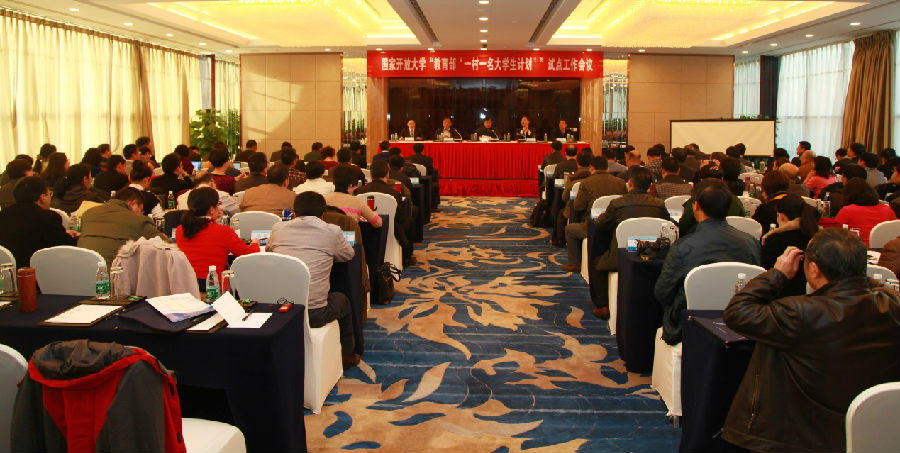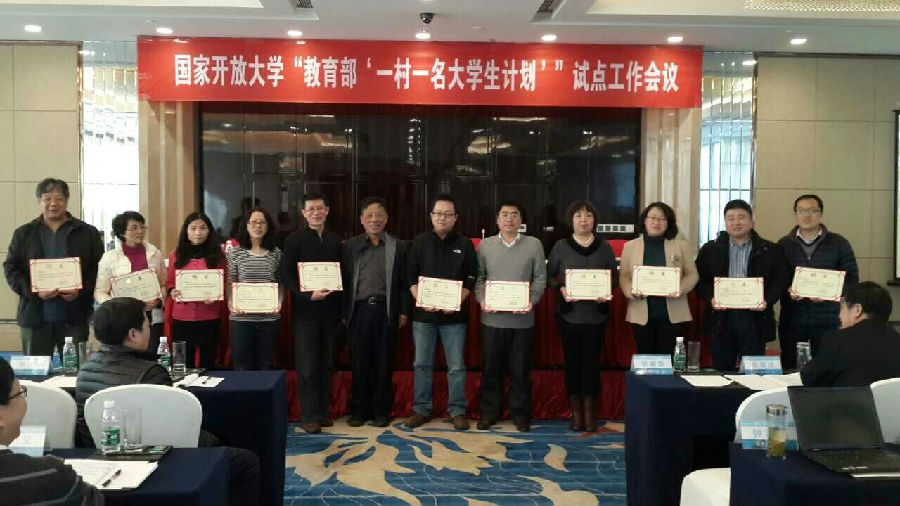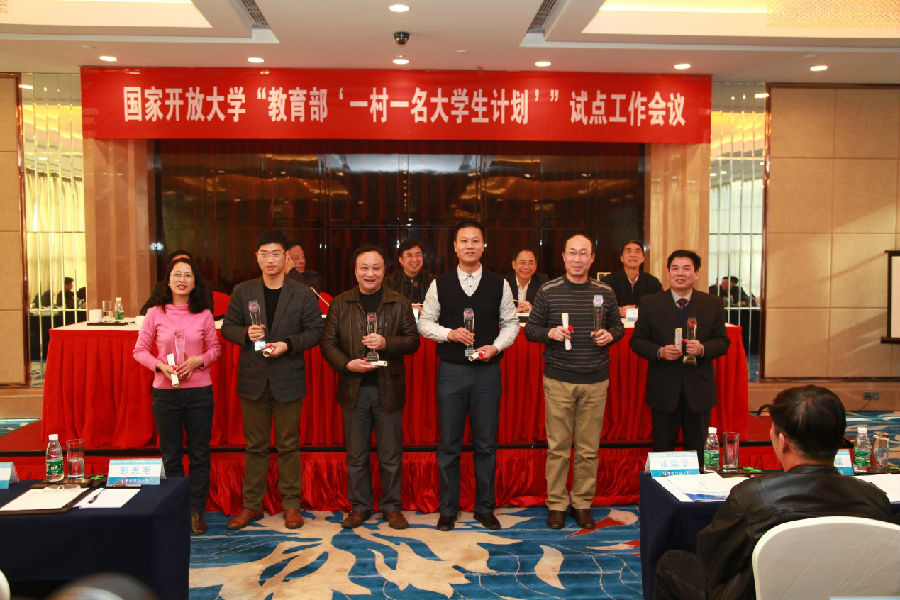
On December 29-30, 2014, the pilot working conference for the “One College Student per Village Scheme” launched by the Ministry of Education” (MOE) was convened by The Open University of China (OUC) in Changsha, Hunan Province. Representatives from 38 Radio and TV Universities (RTVUs) and Open Universities in provinces and cities throughout China gathered together to summarize their experience and results after ten years of the “One College Student per Village Scheme”, and to discuss measures to further promote the scheme during the progress of the construction of the OUC and the transformation and upgrading of the RTVU system.



Deputy Director of Hunan Provincial Department of Education, Mr. Zou Wenhui, attended the conference and made a speech. President of the OUC, Mr. Yang Zhijian, together with his presidential assistants, Mr. Liu Chen and Mr. Yang Xiaotang, also attended the conference, which was hosted by Mr. Yan Bing, Vice President of the OUC.
President Yang Zhijian delivered a speech at the working conference. He pointed out that the OUC was a new type of university and a carrier to boost lifelong learning for all people and create a learning society. The university’s mission is to enhance the overall quality of the national populace, promote fairness in education and generally increase the quality of education. The “One College Student per Village Scheme” reflects the educational philosophy of the OUC and it has achieved huge success since its launch ten years ago, exercising an important role in improving the quality of the population and advancing educational equality.
Mr. Yan Bing emphasized that the theme of the conference was “Adapt to the New Normal and Build an Upgraded Version”. He said that the implementation of the scheme aimed to serve new socialist countryside construction and social development, and to provide education that can create true value for the countryside, agriculture and peasants. According to Mr. Yan, the implementation of the scheme reflects the values of the OUC and is an important component of the university’s development strategy. The key to building an upgraded version is to use problem-oriented methodology to push forward reform, and to continuously study the process of problem solving by constantly promoting and deepening reform.
Mr. Yan pointed out that in the process of teaching reform, problems such as curricula construction, the structure and layout of majors, the integration of information technology and education, the construction and operation of course teaching teams, the construction and operation of teaching and learning practice bases, the reform of the enrollment system and enrollment management, examination reform, and especially process evaluation, certificate education and credit banks, require further study. In addition, a teaching and learning research centre group and experimental base for educational reform should be set up to reinforce topic research.
Director of the Office of the “One College Student per Village Scheme” , Mr. Zhang Zhijun, delivered a report about the pilot work, and introduced the basic state of affairs since the scheme was implemented ten years ago and the current considerations for work in the next stage.
The “One College Student per Village Scheme” teaching research centre group was set up at the conference. The conference also cited the advanced units, outstanding teaching achievements and scientific research achievements made as part of the pilot work. Hunan RTVU, Zhejiang RTVU, Laiyuan County Branch of Hebei RTVU and Zheng’an Workstation of Guizhou RTVU as representatives of the advanced units, Jiangxi RTVU and Huzhou RTVU of Zhejiang, as representatives of the award winning units for outstanding teaching achievements, along with Shandong RTVU and Xianning RTVU of Hubei as representatives of outstanding scientific research achievements, all made exchange speeches at the conference.
In the ten years since the “One College Student per Village Scheme” was implemented by the OUC in the autumn of 2004, 42 branches (open universities) and 1379 learning centres have taken part in the pilot programme, which has cultivated a great number of educated, tech-savvy farmers who understand business operation and can use their knowledge to aid the construction of a new socialist countryside in China.
By Yu Minsheng from the OUC